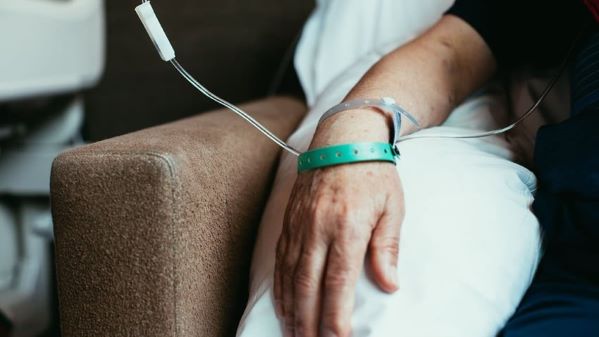As chemotherapy shortage ebbs and flows, attention shifts to long-term solutions
September 29, 2023
Source: drugdu
 402
402

It’s been about 10 months since FDA inspectors rebuked a production plant in India that made popular platinum-based chemotherapies, kicking off a chain reaction of drug shortages that continues to jeopardize cancer care in the U.S.While the White House recently announced that overseas importations and other efforts have increased U.S. supplies of carboplatin and cisplatin, not all clinics are able to access the drugs, according to the American Society of Clinical Oncology's (ASCO's) chief medical officer Julie Gralow, M.D.
Even as supplies recover around the country, a “certain set” of cancer clinics are still unable to get their hands on the medicines, Gralow said in an interview.
The disparity in availability reflects the disproportionate impact the shortage has had on patients based on factors such as location or socioeconomic status, Gralow added. It's often smaller sites that can’t secure the drugs.
While bigger hospitals may have them, those sites often won’t sell them or can’t transfer them to the smaller fish because of legal reasons, she explained. A larger hospital might offer to treat a patient at their location, but that won’t suffice for patients who don’t have the ability to travel.
Drug distribution in the U.S. isn't uniform—or predictable—because of variabilities in purchasing patterns, and this shortage is no different. Some cancer centers were able to make it through the summer without a hitch, while others are only recently feeling the effects, Gralow said.
South Texas Oncology and Hematology’s START Center for Cancer in San Antonio first got word of the carboplatin shortage in April, prompting its practitioners to kick off a plan to stretch their two months’ worth of available supply to cover patients who “need it the most,” START oncologist Gladys Rodriguez, M.D., said in an interview.
In response to the shortage, the center restricted the drug's use to patients with early-stage cancers and discontinued it completely for those with metastatic breast cancer. By the end of May, the clinic “suddenly had 300 patients on a carboplatin regimen that we had no drug for,” Rodriguez said.
It’s hard to overstate just how crucial these medicines are in cancer care. Carboplatin and cisplatin have been heavily relied on since the 1970s and are used regularly as standard-of-care protocols for several different cancer types. The drugs are estimated to be used in the treatment of as many as 500,000 patients with newly diagnosed cancer each year, according to a June report from The ASCO Post.
Up until recently, Rodriguez and her colleagues never had to think about changing or stopping treatments because of supply concerns, she said.
But, in Puerto Rico, where Rodriguez grew up and started her career, scarcity is more commonplace. While practicing in Puerto Rico, she got used to telling patients that a specific treatment wasn’t available.
“I never dreamed that would happen on the continental United States,” she said.
The issue has shined a spotlight on supply chain vulnerabilities that have quietly existed for years. Now, lawmakers, trade organizations and advocacy groups alike are pushing for more permanent solutions.
Earlier this month, the U.S. House Committee on Energy and Commerce’s Subcommittee on Health held a hearing to discuss policy proposals that would target drug shortages.
In its statement (PDF) for the hearing, ASCO made several policy recommendations, including enhanced supply chain transparency, establishing strategic reserves and diversifying the manufacturing base. The organization also endorsed three pieces of legislation that cover some of the recommendations.
These shortages are partly a result of Intas Pharmaceuticals shutting down a plant in India after an FDA inspection, according to CNBC. After FDA inspectors visited the site and flagged a series of observations late last year, Intas stopped production to resolve the FDA's concerns, The Washington Post reported.
But the widespread effects of that shutdown left many in the oncology community surprised, Gralow said. That’s because it wasn’t clear just how many manufacturers got their supplies from that plant, Gralow said.
Much like in cancer care, early detection of supply chain problems is critical for an effective response, according to Gralow. And, while the industry can respond to shortages one at a time, it's important to eventually shift the focus to long-term prevention strategies.
That's something the field has “never gotten a hold on” after decades of successive shortages, she said.
Time and time again, ASCO and other organizations have made recommendations to improve supply chain resiliency. But, with the mainstream media attention swirling around the recent chemotherapy shortage, this one might bring change, Gralow said.
"We’ve got the political will now where we can really make a difference,” Gralow said.
Even still, once all is said and done with the carboplatin and cisplatin situation, “we can’t forget about this one,” she said. “We just can’t.”
ASCO's Julie Gralow talks chemo shortage and solutions (fiercepharma.com)
By editorRead more on
- The first subject has been dosed in the Phase I clinical trial of Yuandong Bio’s EP-0210 monoclonal antibody injection. February 10, 2026
- Clinical trial of recombinant herpes zoster ZFA01 adjuvant vaccine (CHO cells) approved February 10, 2026
- Heyu Pharmaceuticals’ FGFR4 inhibitor ipagoglottinib has received Fast Track designation from the FDA for the treatment of advanced HCC patients with FGF19 overexpression who have been treated with ICIs and mTKIs. February 10, 2026
- Sanofi’s “Rilzabrutinib” has been recognized as a Breakthrough Therapy in the United States and an Orphan Drug in Japan, and has applied for marketing approval in China. February 10, 2026
- Domestically developed blockbuster ADC approved for new indication February 10, 2026
your submission has already been received.
OK
Subscribe
Please enter a valid Email address!
Submit
The most relevant industry news & insight will be sent to you every two weeks.



